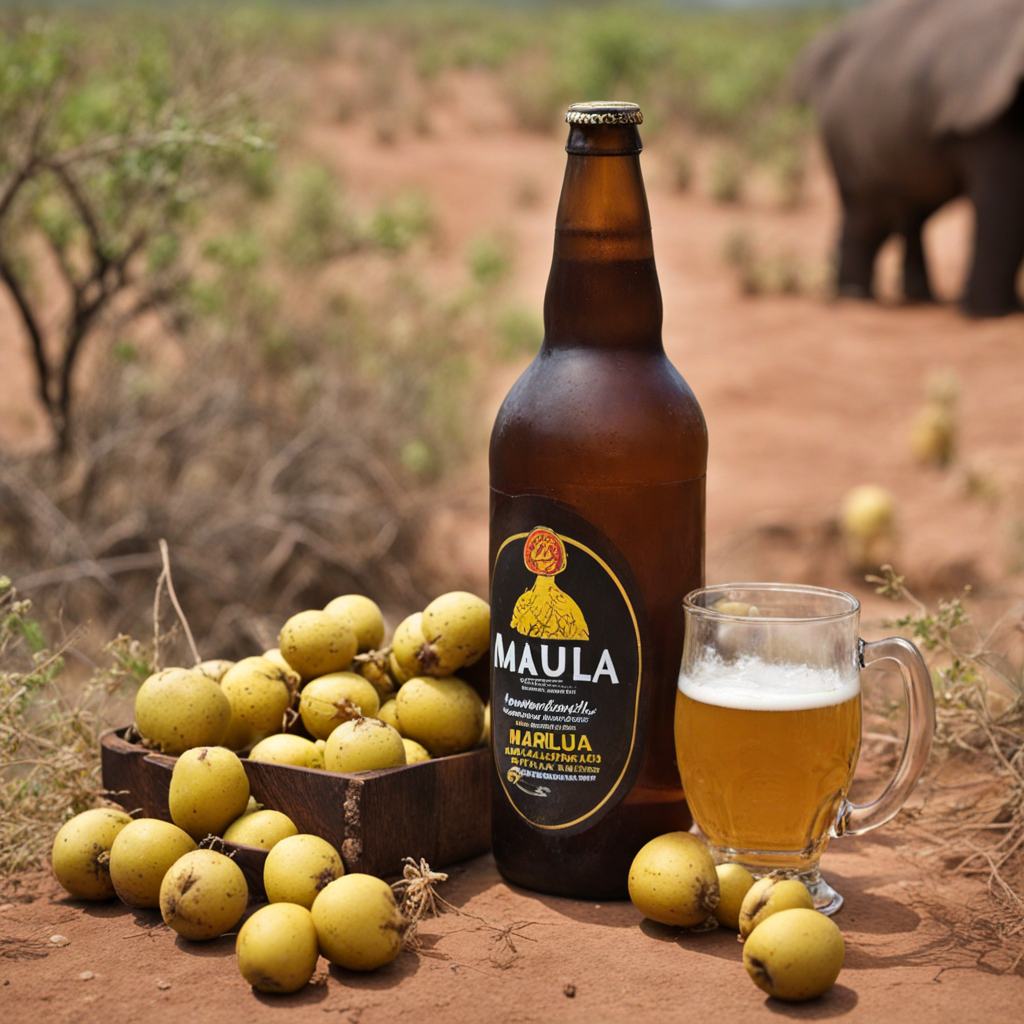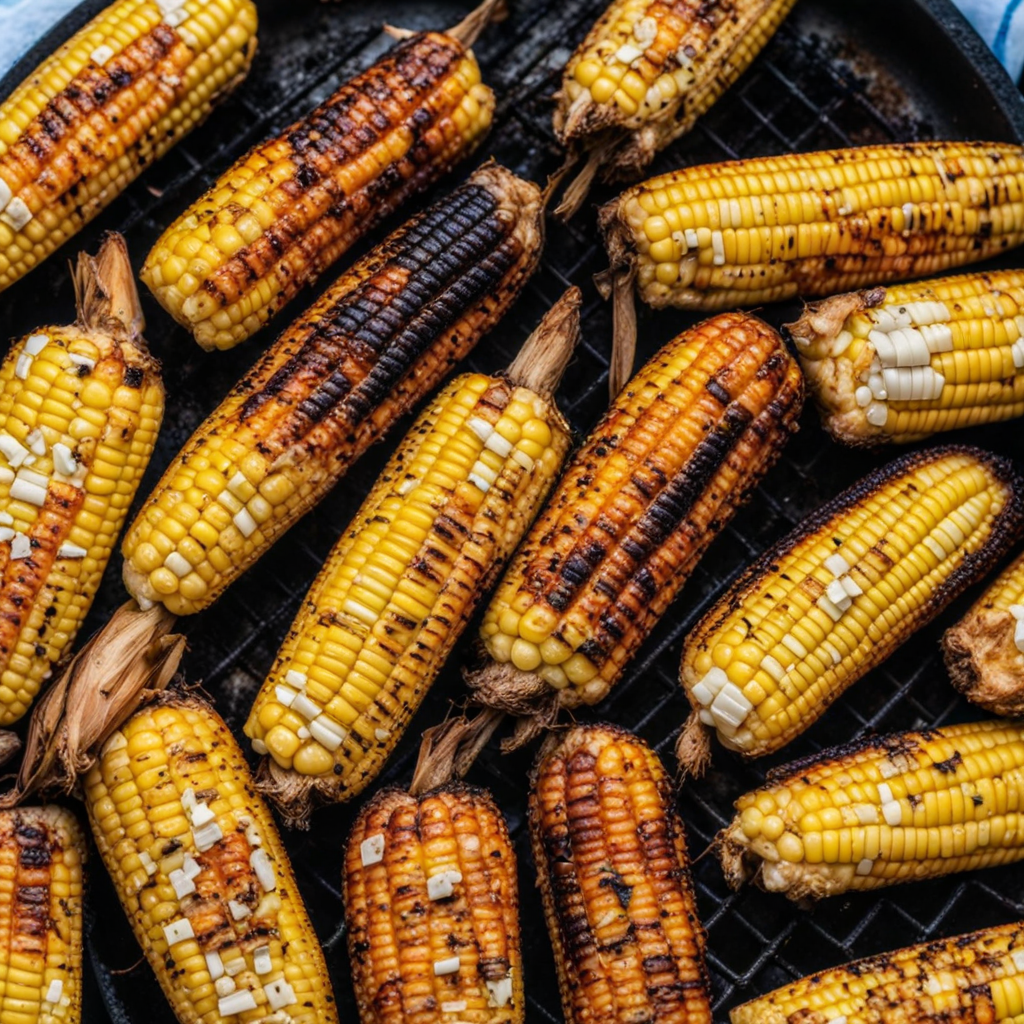Marula Beer
Marula Beer, a traditional brew from Eswatini, offers a unique taste experience that reflects the rich cultural heritage of the region. Made primarily from the marula fruit, this beer captures the essence of the wild, with its sweet, fruity aroma reminiscent of ripe tropical fruits. The marula fruit, known for its distinctive flavor, is harvested when it falls from the tree, ensuring that only the freshest ingredients are used in the brewing process. The fermentation transforms the juicy pulp into a refreshing beverage that boasts a delightful balance of sweetness and slight tartness, making it a perfect thirst-quencher. The brewing process itself is a labor of love, often involving communal efforts where family and friends gather to prepare and enjoy the creation together. Marula Beer is typically unfiltered and has a slightly cloudy appearance, a testament to its artisanal nature. The alcohol content is lower than many commercial beers, which allows drinkers to enjoy it in larger quantities without the heaviness associated with stronger brews. The effervescence adds a lively quality to each sip, enhancing the overall drinking experience. Pairing Marula Beer with traditional Eswatini dishes elevates the tasting experience further. The beer complements savory flavors found in local staples such as braai (barbecued meats) and various vegetable stews, while its fruity notes provide a refreshing contrast to spicy or rich foods. With its deep-rooted cultural significance and delightful flavor profile, Marula Beer invites adventurous food lovers to explore the tastes of Eswatini and immerse themselves in a vibrant culinary tradition.
How It Became This Dish
The History of Buganu: A Culinary Gem of Eswatini Buganu, a traditional brew of the Swazi people in Eswatini (formerly Swaziland), is more than just a beverage; it is a cultural artifact that encapsulates the very essence of the nation’s history, traditions, and social practices. This fermented drink made from the sap of the marula tree, known locally as "imphisi," has evolved through centuries, serving as a vital part of both daily life and ceremonial occasions. #### Origins of Buganu The marula tree, indigenous to Southern Africa, produces a fruit that is not only enjoyed for its sweet, tart flavor but also revered for its sap. The process of making buganu begins during the marula harvest season, which occurs from January to March. Traditionally, Swazi people would tap the tree to collect the sap, a labor-intensive practice that involves making incisions on the trunk to allow the sap to flow out. This sap is then fermented, resulting in a beverage that is slightly alcoholic and effervescent, with a distinct taste reminiscent of the marula fruit itself. The origins of buganu are deeply intertwined with the cultural history of the Swazi people. The marula tree is often referred to as a "tree of life," symbolizing nourishment and sustenance. In many communities, the tapping of the marula tree to produce buganu is not merely a means of creating a drink; it is a communal event that fosters social bonds and celebrates cultural identity. The drink is often enjoyed during gatherings, celebrations, and rituals, thus reinforcing its significance in the Swazi way of life. #### Cultural Significance Buganu holds a special place in Swazi culture, serving as a symbol of hospitality and community. When visitors arrive in a home, offering buganu is a sign of respect and warmth. The drink is commonly served during important ceremonies, including weddings, funerals, and initiation rites. In these contexts, buganu transcends being a mere beverage; it becomes a medium through which stories are told, traditions are passed down, and community ties are strengthened. Moreover, the brewing of buganu is often associated with the role of women in Swazi society. Traditionally, women are the primary brewers, and the process is a reflection of their social status and contribution to the community. Through the act of brewing, women not only provide for their families but also assert their cultural identity and agency within society. The drink is thus a testament to the resilience and creativity of Swazi women, who have preserved this tradition across generations. #### Development Over Time As Eswatini has evolved, so too has the production and consumption of buganu. Historically, the drink was prepared using traditional methods passed down through families. Women would gather to tap the marula trees and brew together, sharing knowledge and practices. However, with the advent of modernization and globalization, the dynamics of buganu production began to shift. In the late 20th century, the introduction of commercial brewing methods and the influence of Western consumer culture began to impact traditional practices. The availability of mass-produced alcoholic beverages led to a decline in the practice of brewing buganu among some communities. Nevertheless, many Swazi people remained committed to preserving their heritage, and efforts to revive traditional brewing methods gained momentum. The turn of the 21st century saw a renewed interest in indigenous foods and beverages, spurred by a broader global movement towards sustainability and cultural preservation. Buganu began to emerge not just as a local drink but as a symbol of national pride. The Swazi government and various cultural organizations recognized the importance of promoting traditional practices, and buganu became a focal point in these initiatives. Festivals celebrating local cuisine, including buganu, were organized, attracting both locals and tourists eager to experience this unique aspect of Swazi culture. #### Modern Interpretations and Globalization Today, buganu is experiencing a renaissance, with its popularity extending beyond the borders of Eswatini. As global interest in artisanal and locally sourced foods increases, buganu has begun to capture the attention of food enthusiasts and researchers around the world. The drink is now being featured in culinary festivals, international conferences on indigenous foods, and even in gourmet restaurants that celebrate traditional African cuisines. Innovative brewers are also experimenting with buganu, introducing variations that incorporate different flavors or modern brewing techniques while still honoring the traditional essence of the drink. This blending of old and new has opened up exciting possibilities for the future of buganu, allowing it to evolve while maintaining its cultural roots. #### Challenges and Future Prospects Despite its resurgence, buganu faces challenges in preserving its traditional methods amidst the pressures of modernity. The marula tree, while abundant in many areas, is also subject to environmental changes and deforestation, raising concerns about the sustainability of its harvest. Additionally, the younger generations, influenced by global consumer trends, may gravitate towards commercial beverages rather than traditional brews. To combat these challenges, community initiatives are essential. Education about the importance of preserving traditional practices, coupled with sustainable harvesting methods, can help ensure that buganu remains a vibrant part of Swazi culture. Furthermore, encouraging the younger population to engage in brewing and the cultural practices surrounding buganu can foster a renewed sense of pride in their heritage. #### Conclusion Buganu is more than a drink; it is a testament to the history, culture, and resilience of the Swazi people. From its origins rooted in the marula tree to its role in social gatherings and ceremonies, it embodies the spirit of community and tradition. As Eswatini navigates the complexities of a modern world, the continued reverence for buganu serves as a reminder of the importance of cultural heritage. By embracing both tradition and innovation, buganu has the potential to thrive as a cherished aspect of Swazi identity for generations to come.
You may like
Discover local flavors from Eswatini







